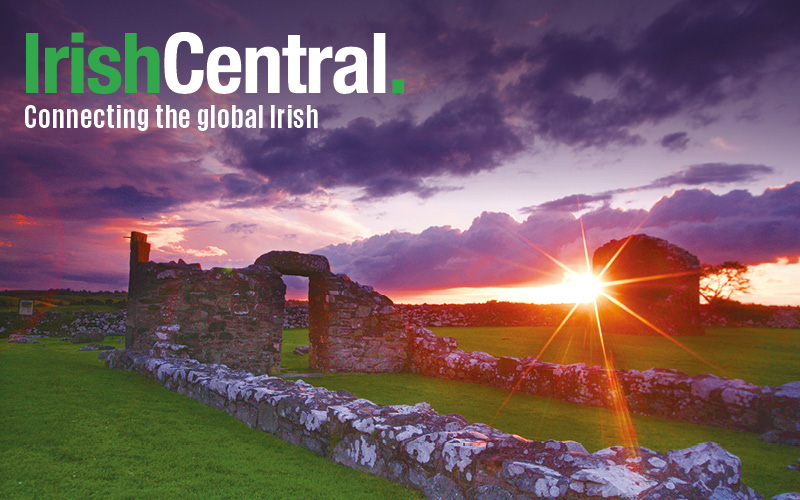The revolt against Irish romanticism led my editor Niall O'Dowd to declare "I find the use of the word Eire, very annoying. Ireland has not been Eire since the declaration of the Irish Republic in 1949. Why it persists I don't know."
Mr. O'Dowd speaks Irish and is responding, I think, to the thing Irish Irish people hate, and that's having their own humanity confused with fairy imagery. Turning a people into children or fairies or primitives or what have you, was a basic tactic of the psychological belittlement that must accompany physical subjugation.
That long history of belittlement, has left people feeling safer to reject Small is Beautiful ideas, in favor of Bigger is Better ones. By identifying only with the Big One, one feels more evolved, adult and powerful. Éire might be beautiful and all that, but it doesn't have the big brand identity of Ireland. In "Ireland" the Irish have a shot at respectability. In "Eire" the Irish are lost to an impoverished fairy land, or so the belittled thinking goes.
This view of Irish life in Irish, comes from the trauma of the 19th century. Since then, the Irish-in-English have taken a foreigner view of their Irish-speaking origins as a childish time, before they got with the Big thing in New Ireland. Irish-in-Irish are threatening in the demands they make simply by being: that Irishness not become some cartoonish stance or pose taken in English on behalf of what exactly.
But that's a problem that stems from the need constantly to define Irish identity in political terms. It's better on the heart to define Irishness in cultural terms, and to find love for Éire-with-a-small-"i" just because it's beautiful. Having to define one's Irishness by political declarations alone, leaves Irishness susceptible to becoming as empty and forgotten as political slogans become in normal life. Defending Éire means learning Irish. The Republic is nothing if Éire is made passé.
The problem is history. Éire is taken to be historic, and so the way the Irish look back defines their view of Ireland now. Éire as a prosperous Gaelic nation with plenty of lords and ladies in fine big houses trading all over the world, is often forgotten for Éire of the Famine times. When the Wild Geese fled, the common Irish were abandoned and in too many cases had to learn to hate or betray Ireland in droves for the safety of themselves and more terrifyingly, for their loved ones. Anti-Irishness became the path to Irish advancement, and that sort of thing, does the head in. This cycle persists in modern times, as economic down-turns become the same crises of identity that caused Famine Irish to hate Irishness.
People have learned to hate Éire, the Irish word that is the same as the English word Ireland, because Irish identity is a heavy burden, and most are just unloading. Doing away with the very real word Éire, would mean to do away with the Irish language itself--such would be the only way, and it's becoming fine by many.
Still, Mr.O'Dowd has a point, though his New Amsterdam analogy was too blunt of one, as Ireland is not yet as estranged from Irish, as New York is from Dutch. Mr.O'Dowd knows there's an old technique in using the word "Eire" by English press when writing in English about Ireland. Printing "Eire" instead of "Ireland" in an English-language story can be done with the intent to slight. It's a subtle way of delegitimizing Ireland's independence, due to "Eire's" unfamiliarity in English. The fada is the last straw. Mr.O'Dowd is keen to pick-up on such offenses, sometimes making them himself when he does away with the accent mark. But he speaks Irish, so he's almost allowed.
These hang-ups only happen in English. In Europe where languages flourish, Ireland is known to have an Irish name Éire and an English one, without controversy. Denmark is the same way, going by Danmark in Danish and Denmark in English. China is the word in English, but it's 中国 in Chinese. 日本 is Japan. יִשְׂרָאֵל is Israel.
Éire isn't quite as Greek as Ελλάδα or Greece, but it's nice to put the long mark above the big É, just the same.




Comments